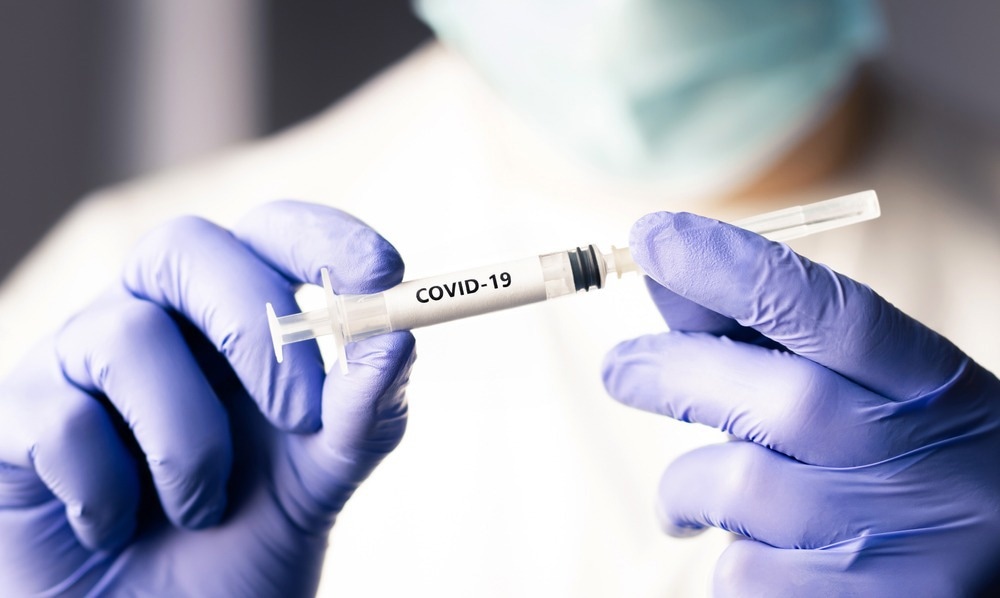In a recent article published in the medRxiv* preprint server, researchers conducted phase 3 evaluations of the immunogenicity of the two immunization timeframes of the CoronaVac coronavirus disease 2019 (COVID-19) vaccine among Chilean adults.

Background
Severe acute respiratory syndrome coronavirus 2 (SARS-CoV-2), first identified in Wuhan, China, by the end of December 2019, is responsible for the present COVID-19 pandemic. SARS-CoV-2 has caused more than 6.41 million fatalities and 581 million instances of infection over the last 2.5 years worldwide.
The establishment of vaccinations to stop the spread of the SARS-CoV-2 pandemic is a top priority globally. The World Health Organization (WHO) has approved 10 vaccine prototypes for emergency use due to the global efforts to create efficient vaccines targeting SARS-CoV-2. In addition, more than eight billion vaccines have been given to humans thus far.
An inactivated COVID-19 vaccine, CoronaVac, has been approved by the WHO for emergency use. It showed strong immunogenicity and efficacy in studies conducted in Brazil, China, Indonesia, Chile, and Turkey. In Chile and Turkey, CoronaVac had an effectiveness of 87.5% and 83.5%, respectively, for preventing COVID-19-related hospitalization among healthy adults.
About the study
In the current multicenter, controlled, randomized phase 3 study, the scientists analyzed the immune response induced by two vaccination timeframes for the whole virus-inactivated COVID-19 vaccine, CoronaVac, with two shots of the vaccine spaced by two (zero to 14 schedule) or four (zero to 28 schedule) weeks across healthy Chilean adults aged 18 or older.
The study encompassed 2,302 subjects, 440 of whom were in the immunogenicity arm. Further, the investigators procured blood samples from the volunteers at various timestamps.
The samples were reported from a single site. Humoral immune responses were assessed by evaluating the neutralizing abilities of the circulating antibodies. For this, the researchers conducted separate SARS-CoV-2 ancestral strain surrogate virus neutralization tests (sVNTs), conventional VNTs (cVNTs), and pseudotyped VNTs (pVNTs).
Cellular immune responses were evaluated using flow cytometry and enzyme-linked immunosorbent spot (ELISPOT) test. The team measured the expression of activation-induced markers (AIM) on T cells using flow cytometry and the number of spot-forming cells (SFCs) for interferon γ (IFN-γ) using ELISPOT.
Additionally, 88 volunteers' peripheral blood mononuclear cells (PBMCs) were examined for the two immunization techniques and schedules. PBMCs were stimulated individually with four megapools (MPs) of peptides made up of the SARS-CoV-2 proteome to test the antigen-selective IFN-γ secretion and AIM expression by T cells in response to SARS-CoV-2.
Mesoscale discovery (MSD) immunoassays were used to determine antibody levels against the spike (S) protein and the receptor-binding domain (RBD) from the SARS-CoV-2 variants of concern (VOCs) to ascertain whether the immunization timeframe had any influence on the pattern of antibodies evoked against SARS-CoV-2 VOCs. Correlation matrixes were used to assess correlations in the measured data.
Results
The study results demonstrated that circulating antibodies generated by CoronaVac displayed improved neutralizing capabilities against SARS-CoV-2 as measured by four distinct assays. Both the two-week and four-week regimens of CoronaVac had potent neutralizing abilities. However, the four-week strategy produced a better response. The authors reported that regardless of the age group studied, CoronaVac vaccination led to considerably higher titers of circulating neutralizing antibodies for both vaccination schedules at all periods following the first and second shots.
Surprisingly, there were no variations between schedules for the level of antibodies against the S and the RBD proteins four weeks following the second dose. Nevertheless, decreased breadth indexes were observed for the various VOCs examined, with increasing values against Omicron and Beta VOCs but reduced values against the other variants in the zero to 28 schedule. This inference suggested that a booster shot might be necessary to stimulate a more effective protective humoral immune reaction against these newly developing viral variants.
PBMC stimulation using MPs triggered IFN-γ secretion and expression of AIMs similarly for both vaccination schedules. Both immunization regimens were capable of fostering coordinated humoral and cellular immune reactions according to correlation matrixes. Thus, correlation matrixes indicated robust associations between IFN-γ secretion and neutralizing antibodies.
Conclusions
Collectively, the study findings depicted that strong humoral and cellular immune responses were elicited by CoronaVac immunization among Chilean adults following either a zero to 28 or a zero to 14 vaccination schedule. Interestingly, the vaccine's four-week schedule led to a superior humoral immune reaction than the two-week schedule.
According to the scientists, further research on the current phase 3 trial will concentrate on the immune reaction triggered at later periods post-vaccination (i.e., six and 12 months following the first dose), CoronaVac's ability to protect against circulating SARS-CoV-2 variants, and the capability of a third dose to elicit a potent immune response.
*Important notice
medRxiv publishes preliminary scientific reports that are not peer-reviewed and, therefore, should not be regarded as conclusive, guide clinical practice/health-related behavior, or treated as established information.
- Gálvez, N. et al. (2022) "Differential immune response induced by two immunization schedules with an inactivated SARS-CoV-2 vaccine in a randomized phase 3 clinical trial". medRxiv. doi: 10.1101/2022.08.05.22278464. https://www.medrxiv.org/content/10.1101/2022.08.05.22278464v1
Posted in: Medical Science News | Medical Research News | Disease/Infection News
Tags: Antibodies, Antibody, Antigen, Blood, Clinical Trial, Coronavirus, Coronavirus Disease COVID-19, covid-19, Cytometry, Efficacy, Enzyme, Flow Cytometry, Immune Response, Immunization, Immunoassays, Interferon, Omicron, Pandemic, Peptides, Protein, Proteome, Receptor, Research, Respiratory, SARS, SARS-CoV-2, Severe Acute Respiratory, Severe Acute Respiratory Syndrome, Syndrome, Vaccine, Virus

Written by
Shanet Susan Alex
Shanet Susan Alex, a medical writer, based in Kerala, India, is a Doctor of Pharmacy graduate from Kerala University of Health Sciences. Her academic background is in clinical pharmacy and research, and she is passionate about medical writing. Shanet has published papers in the International Journal of Medical Science and Current Research (IJMSCR), the International Journal of Pharmacy (IJP), and the International Journal of Medical Science and Applied Research (IJMSAR). Apart from work, she enjoys listening to music and watching movies.
Source: Read Full Article